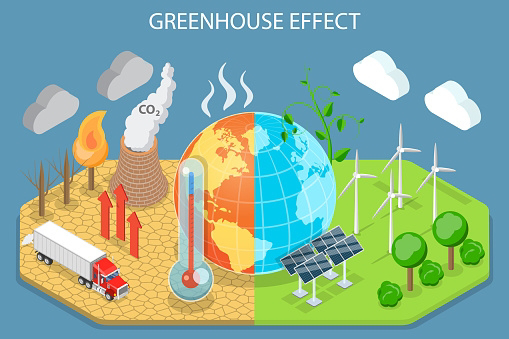Greenhouse gases are gases that trap heat in the Earth's atmosphere and contribute to the greenhouse effect. The most common greenhouse gases are carbon dioxide (CO2), methane (CH4), nitrous oxide (N2O), and fluorinated gases. These gases are emitted by various human activities such as burning fossil fuels, deforestation, and agriculture.
When greenhouse gases are released into the atmosphere, they absorb and trap heat from the sun, preventing it from being radiated back into space. As the concentration of greenhouse gases in the atmosphere increases, the amount of heat that is trapped also increases, leading to a gradual increase in global temperatures.
This increase in global temperature, known as global warming, has a range of impacts on the environment and human societies. It can cause melting of polar ice caps and glaciers, rising sea levels, more frequent and severe weather events, and changes in patterns of precipitation and temperature. These changes can lead to the loss of habitats and biodiversity, food and water insecurity, and displacement of populations.
Therefore, it is important to limit the emission of greenhouse gases and transition towards cleaner and more sustainable energy sources to mitigate the impacts of global warming.








